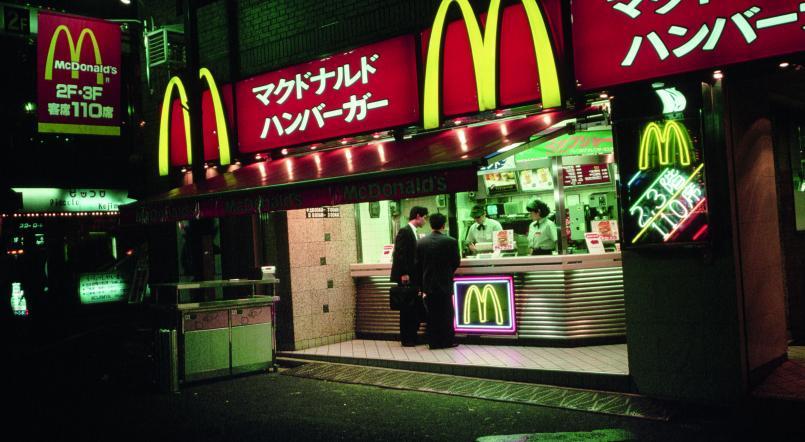of the Board and Managing Executive Officer of Mitsui Chemicals.
Director of Deloitte Southeast Asia.
HQ Asia: What do Japanese organisations look for when they are appointing a CEO?
Etsuo Takenouji (ET): I think the requirements for a CEO are similar all over the world: leadership, human management and foresight. But, in the case of Japanese companies, the balance is somewhat different. Compared with Western companies, Japanese CEOs prioritise people management, team process and team work, rather than individualism or will to change.
Hugo Walkinshaw (HW): The emerging Asian companies are going through the same process that most Western multinationals went through when they expanded into Asia. They are asking, “Who understands our culture best and who fits best?”
It is only logical to have someone at the helm of the company who, both linguistically and culturally, can operate in and understand the environment. The nuances around decision-making in Japan, for example, can be tough for a Westerner to understand and take time to adapt to.
Are there traits unique to Japan’s corporate culture?
ET: Relatively speaking, Japan is a very homogenised country. While the mixing of races was common in Europe and the US, geographical and historical conditions isolated us. Western culture is based on the hunting of animals, which is an individual challenge, but Japanese life was based on farming, which prioritises group work. However, the Japanese are also good at adapting to other cultures.
HW: Japan is something of an anomaly in the region in that they went down an isolationist path at a time when Western trade and influence was spreading across the region. [From the mid-17th century to mid-19th century, the ruling Tokugawa Shogunate enforced an isolationist policy that officially prohibited foreign contact with Japan.]
The legacy of that period has meant that old traditions underpin management culture. Given that the bulk of most companies’ workforces are also Japanese, organisations often feel more comfortable with a Japanese leader that has grown up in that culture.
How do these traits translate into tangible differences between being a CEO of a Japanese, rather than Western, organisation?
ET: Usually in the West, when a CEO is asked to revive the company, he thinks that profitability and creating returns for shareholders is his prime responsibility. But in Japan, the different stakeholders – employees, customers and shareholders – have different priorities.
A foreign CEO might put too much emphasis on shareholder expectations, but Japanese CEOs understand they have to manage all the stakeholders. In Japan the relationship with customers is stronger than in the West, and the CEO sees himself as having a responsibility to the company and to the customer.
In Japan providing employee job security is a critical reality of management. Take my experience with Mitsui and DuPont (American chemical firm and Mitsui Chemical joint venture partner). In 2002, DuPont had 140,000 employees. Today – as DuPont moved from conventional chemicals into the biotechnology business – it employs 60,000 people. This includes employees who joined the company with the acquisitions of Pioneer Hi-Bred and Danisco.
On the other hand, at Mitsui Chemical, we have kept approximately the same number of people for the last 10 years. We don’t make lay-offs. I’m not saying if this is right or wrong, I’m simply pointing out the difference compared to the West.
What challenges do the CEOs of Japanese organisations face?
HW: There was a strong view, one I believe that was globally held, that the Japanese approach to business was extremely effective, and did not need changing. That has changed significantly over the last few years from two perspectives. Firstly, the growth driver for the Japanese economy is increasingly from overseas, and not the domestic market. Secondly, the workforce is shrinking as a result of falling birth rates, which means there simply will not be enough people in generations to come to drive the economy. This has given Japanese organisations no choice but to look overseas for both market demand and workforce supply.
As a result, significant revenue streams are generated from overseas markets and organisations are relocating key parts of their operations into those markets. These organisations are now changing their leadership models, so that leadership talent comes from local markets, rather than from Japan.
Why have foreign CEOs struggled to succeed at Japanese organisations?
ET: Many foreign CEOs are not successful. The two biggest reasons for failure are communication and understanding management processes. Communication is more than a language issue. Conveying the implications of what you are trying to do and developing team atmosphere and understanding sometimes goes beyond logic. In addition, most Japanese CEOs have grown within the company, so they are familiar with the company’s cultures and management processes. The CEO must therefore understand the corporate culture when driving change, especially when a radical change is needed.
How do you see the role of the CEO in Japanese organisations evolving?
HW: What organisations are looking for in a senior executive role is no different to most Western companies – overseas international exposure, multi-lingual capability, depth of industry experience, and so on. Having said that, Japanese organisations are more likely to look for that experience in a Japanese national, rather than betting on a Japanese-centric foreign national.
ET: Japanese leaders that grew up in the homogenised Japanese market are relatively weak in the competitive global market. For example, Japanese companies accept a low level of ROI that usually wouldn’t be accepted in the West.
I think younger people – Japan’s future leaders – should experience foreign countries to understand the reality outside the Japanese market. However, when they return they will work for Japanese companies, so they also need to understand the way of Japanese culture to make them viable. But, Japan as a culture also has to change to reflect the realities of the global environment.
This article was first published in HQ Asia (Print) Issue 06 (2013)


